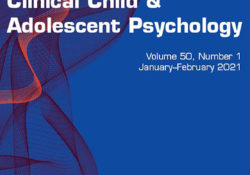eric.ed.gov har udgivet: In the spring of 1990, over 9,000 4th-, 8th- and 12th-grade students (only 6 percent of all students in Massachusetts) were assessed using open-ended mathematical, scientific, social studies, and reading concepts. Beginning with the Massachusetts Educational Assessment Program for 1992, open-ended questions will be administered to all students and will contribute to school and district scores. This series of reports describes the results of these assessments to communicate levels of student achievement throughout the state, familiarize teachers and administrators with the types of questions that will be included on the next assessment; and improve assessments taking place within classrooms by providing models that teachers can adapt to their own evaluations of students’ knowledge, understanding, and abilities. Fifteen handouts for grade 4, 17 handouts for grade 8, and… Continue Reading →
Like this:
Like Loading...
tandfonline.com har udgivet en rapport under søgningen “Teacher Education Mathematics”: ABSTRACT ABSTRACT Asking questions is an important way of acquiring information and knowledge and plays a significant role in a child’s learning processes. In this study, we examine what characterises the questions asked by children to their teachers in two kindergartens (4–6-year-olds) and six primary school classes (2nd–4th grade) when situated in a natural outdoor environment. Recordings are undertaken by means of action cameras and audio recorders. We also examine the contexts in which the questions are asked. We found that whereas the preschool children’s science topic questions mostly concerned subject matter (74–95%), the schoolchildren more often asked practical questions. Our findings indicate that providing the children with activities that open for the children’s own explorations of a variety of… Continue Reading →
Like this:
Like Loading...
tandfonline.com har udgivet en rapport under søgningen “Teacher Education Mathematics”: (Second) Inaugural Editorial: How the Journal of Clinical Child and Adolescent Psychology Can Nurture Team Science Approaches to Addressing Burning Questions about Mental Health Link til kilde
Like this:
Like Loading...
eric.ed.gov har udgivet: Undergraduate preservice teachers face many challenges implementing inquiry pedagogy in mathematics lessons. This study provides a step-by-step case analysis of an undergraduate preservice teacher’s actions and responses while teaching an inquiry lesson during a summer math camp for grade 3-6 students conducted at a university. Stumbling blocks that hindered achievement of the overall goals of the inquiry lesson emerged when the preservice teacher asked open-ended questions and learners gave diverse, unexpected responses. Because no prior thought was given to possible student answers, the preservice teacher was not equipped to give pedagogically meaningful responses to her students. Often, the preservice teacher simply ignored the unanticipated responses, impeding the students’ meaning-making attempts. Based on emergent stumbling blocks observed, this study recommends that teacher educators focus novice teacher preparation in… Continue Reading →
Like this:
Like Loading...

tandfonline.com har udgivet en rapport under søgningen “Teacher Education Mathematics”: ABSTRACT ABSTRACT Facial recognition technology is now being introduced across various aspects of public life. This includes the burgeoning integration of facial recognition and facial detection into compulsory schooling to address issues such as campus security, automated registration and student emotion detection. So far, these technologies have largely been seen as routine additions to school systems with already extensive cultures of monitoring and surveillance. While critical commentators are beginning to question the pedagogical limitations of facially driven learning, other this article contends that school-based facial recognition presents a number of other social challenges and concerns that merit specific attention. This includes the likelihood of facial recognition technology altering the nature of schools and schooling along divisive, authoritarian and oppressive lines.… Continue Reading →
Like this:
Like Loading...
eric.ed.gov har udgivet: This paper describes two researchers engagement with two teachers as they taught a middle grades mathematics course, Current Events Math, in a large urban school district. The researchers share bits of data and their ethical entanglements as they entered into the site to find the truth about what works in middle grades mathematics classrooms only to realize that truth cannot be found through research. They then grappled with the question of the purpose of research and their roles as researchers in the school and the academy. [For the complete proceedings, see ED583608.] Link til kilde
Like this:
Like Loading...
eric.ed.gov har udgivet: This study tried to explore the degree of representation of math textbooks for grades (4-8) in the Kingdom of Saudi Arabia concerning the key concepts, shape, and levels of questions used in the TIMSS test. The study population of this study includes both students and teachers from fourth grade to eighth grade. The goal of this study was associated with six key concepts including numbers and their operations, algebra, geometry, measurement, statistics and probability, and a pro-rata. The researcher analyzed the questions and exercises used in the math textbooks to identify their effectiveness and efficiency. In addition, the researcher also calculated the percentages, the levels, and the shape for each key concept. The results of the study were organized in frequency tables. In the light of those… Continue Reading →
Like this:
Like Loading...
tandfonline.com har udgivet en rapport under søgningen “Teacher Education Mathematics”: Abstract Formulae display:?Mathematical formulae have been encoded as MathML and are displayed in this HTML version using MathJax in order to improve their display. Uncheck the box to turn MathJax off. This feature requires Javascript. Click on a formula to zoom. Abstract Over the past 30 years, the way in which the first course in statistics has been taught has moved away from a mathematics mode to take account of the distinctiveness of statistics. This article considers exercises for the typical introductory course and gives some evidence that many of these look like somewhat expanded versions of mathematics course exercises, and are thus less than optimal given the goals of statistics education. The article contends that exercises for statistics courses… Continue Reading →
Like this:
Like Loading...



